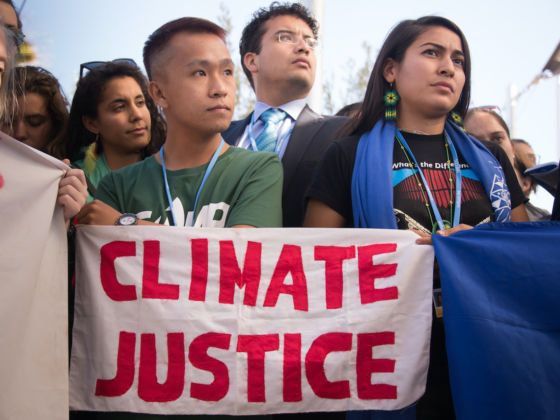Four metric tons of carbon. This is my personal contribution to climate change; the result of a roundtrip flight halfway around the world.
I sigh heavily, tap my fingers on the tray table. The man next to me clears his throat, folds his newspaper into the seat pocket, and asks where I’m going. When I tell him I’m on my way to Doha for the United Nations climate change negotiations, he raises his eyebrows. His surprise pressing gently against my battered Tom’s shoes, worn skinny jeans, hair pulled into an unkempt pony tail, and the fact that I don’t look important enough to be going to a UN-anything.
